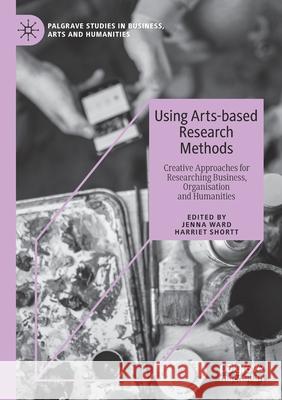Using Arts-Based Research Methods: Creative Approaches for Researching Business, Organisation and Humanities » książka
topmenu
Using Arts-Based Research Methods: Creative Approaches for Researching Business, Organisation and Humanities
ISBN-13: 9783030330712 / Angielski / Miękka / 2021 / 277 str.
Using Arts-Based Research Methods: Creative Approaches for Researching Business, Organisation and Humanities
ISBN-13: 9783030330712 / Angielski / Miękka / 2021 / 277 str.
cena 724,58
(netto: 690,08 VAT: 5%)
Najniższa cena z 30 dni: 616,85
(netto: 690,08 VAT: 5%)
Najniższa cena z 30 dni: 616,85
Termin realizacji zamówienia:
ok. 16-18 dni roboczych.
ok. 16-18 dni roboczych.
Darmowa dostawa!
Kategorie:
Kategorie BISAC:
Wydawca:
Palgrave MacMillan
Seria wydawnicza:
Język:
Angielski
ISBN-13:
9783030330712
Rok wydania:
2021
Wydanie:
2020
Numer serii:
000820061
Ilość stron:
277
Waga:
0.36 kg
Wymiary:
21.01 x 14.81 x 1.63
Oprawa:
Miękka
Wolumenów:
01
Dodatkowe informacje:
Wydanie ilustrowane











